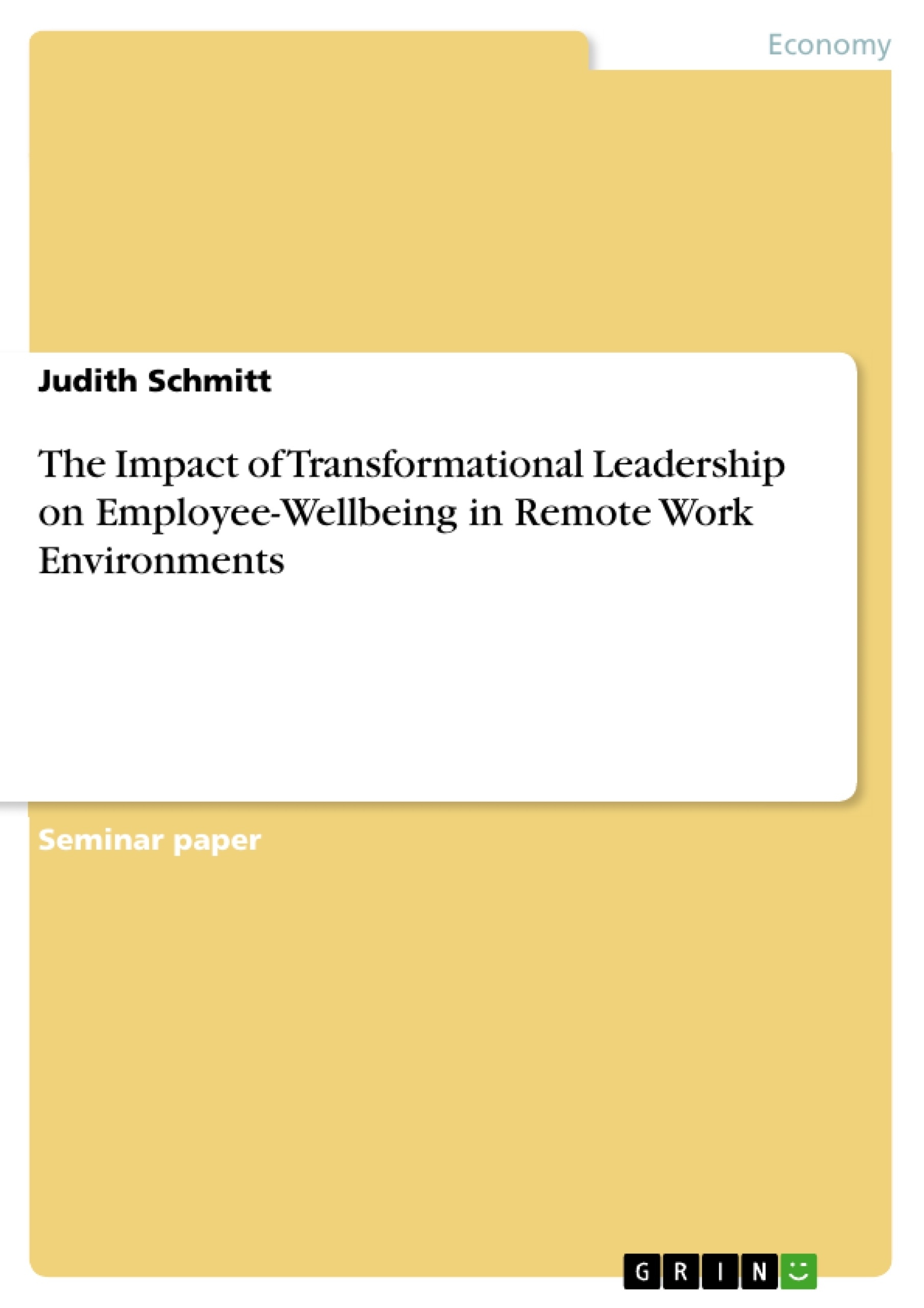This paper analyzes the impact of transformational leadership on employee well-being in remote work environments. As several studies suggest, there is a positive relationship between transformational leadership and employee well-being, but it is rather complex as it is influenced by specific mediating and moderating factors. Since the ongoing COVID-19 crisis forced many teams into remote working conditions, also leadership was predominantly performed virtually. This leads to adapted requirements for the promotion of employee well-being. This paper seeks to identify those adjustments. Thus, a conceptual model was constructed to illustrate the relationship of transformational leadership and employee well-being, which was then applied to remote work environments to propose relevant adaptations.
Inhaltsverzeichnis (Table of Contents)
- Evaluating the Impact of Transformational Leadership on Employee-Wellbeing in Remote Work Environments
- Employee Well-Being
- Transformational Leadership
Zielsetzung und Themenschwerpunkte (Objectives and Key Themes)
This paper evaluates the impact of transformational leadership on employee well-being in remote work environments, particularly in the context of the COVID-19 pandemic. It aims to construct a conceptual model that illustrates how this framework can be adapted to remote work conditions.
- The impact of transformational leadership on employee well-being in remote work environments.
- The adaptation of transformational leadership to remote work environments.
- The role of mediating factors, such as trust in leadership and perceived meaningfulness of work.
- The role of moderating factors, such as the followers' openness to experience and expectation of health-oriented leadership.
- The development of a conceptual model to illustrate the relationship between transformational leadership and employee well-being in remote work environments.
Zusammenfassung der Kapitel (Chapter Summaries)
- The first chapter introduces the research topic, outlines the objective and research question, and explains the methodology, which involves an extensive literature review and the construction of a conceptual model. It emphasizes the importance of studying the impact of leadership on employee well-being, particularly in the context of remote work environments.
- The second chapter focuses on employee well-being, defining it as a construct that includes job satisfaction, mental strain, and depression. It reviews studies that link employee well-being to individual and organizational performance, and explores how various factors, such as organizational culture and leadership behavior, can influence it.
- The third chapter explores transformational leadership, its four key components, and its impact on employee well-being. It discusses how transformational leadership can promote trust, self-efficacy, and meaningfulness of work, leading to positive outcomes for employees. It also presents various empirical studies that highlight the mediating and moderating factors involved in the relationship between transformational leadership and employee well-being.
Schlüsselwörter (Keywords)
The main keywords and focus topics of this text include transformational leadership, employee well-being, remote work environment, mediating factors, moderating factors, conceptual model, and the COVID-19 pandemic. The research focuses on understanding the impact of transformational leadership on employee well-being in the context of remote work environments, identifying relevant adaptations, and exploring the role of mediating and moderating factors in this relationship.
Frequently Asked Questions
What is the impact of transformational leadership on employee well-being?
Research suggests a positive relationship, where transformational leaders promote trust and meaningfulness, though the effect is complex and influenced by various factors.
How did the COVID-19 pandemic affect leadership requirements?
The pandemic forced a shift to virtual environments, requiring leaders to adapt their transformational behaviors to maintain employee well-being from a distance.
What are "mediating factors" in this leadership model?
Mediating factors are variables like trust in leadership and the perceived meaningfulness of work that help explain how leadership leads to better well-being.
What role do "moderating factors" play?
Moderating factors, such as an employee's openness to experience or their expectation of health-oriented leadership, determine the strength or direction of the leadership's impact.
How is employee well-being defined in this paper?
It is defined as a construct encompassing job satisfaction, mental strain, and the absence of depression or significant stress.
What are the four components of transformational leadership?
The components include idealized influence, inspirational motivation, intellectual stimulation, and individualized consideration.
- Citar trabajo
- Judith Schmitt (Autor), 2021, The Impact of Transformational Leadership on Employee-Wellbeing in Remote Work Environments, Múnich, GRIN Verlag, https://www.grin.com/document/1373563



